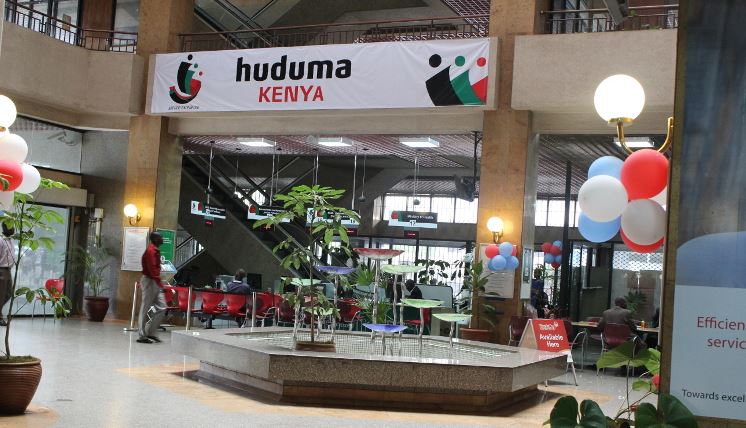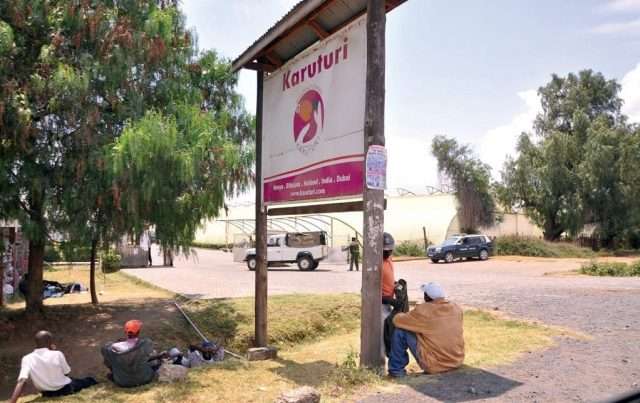By TWV Team
A tense meeting chaired by President William Ruto at State House, Nairobi last week, is reported to have partly resolved the long-standing liquidity crisis facing the Postal Corporation of Kenya (PCK), The Weekly Vision can authoritatively reveal.
To unlock the full article:
Choose one of the options below:
- Ksh 10 – This article only
- Ksh 300 – Monthly subscription
- Ksh 2340 – Yearly subscription (10% off)
Huduma Kenya, a State corporation under the Ministry of Public Service, has not paid rent to PCK for office space it occupies in postal facilities across the country since 2013—arrears that have now accumulated to KSh1.8 billion.
According to sources, the President directed the PCK management, led by the Postmaster General, to allocate a substantial portion of the sum to recurrent expenditure, including the settlement of five months’ staff salary arrears (KSh480 million) and pending suppliers’ bills (currently standing at KSh1.4 billion).
Despite repeated demand letters from PCK and interventions by the National Treasury, Huduma Kenya’s leadership had for years ignored the matter. Previous attempts by PCK to evict the State corporation from its premises proved unsuccessful. However, this time the President is said to have “read the riot act” to Huduma Kenya’s senior management, ordering CEO Ben Kai Chilumo to work with the Treasury and the National Assembly leadership to ensure the KSh1.8 billion rent arrears are factored into the 2025/26 budget.
Among the Huduma Centres housed within PCK premises are Nairobi GPO, Nairobi City Square, Nyeri General Post Office, Mombasa Posta, Kakamega, Nakuru, Meru, Machakos, Kisii, Bungoma, and Marsabit. Huduma Kenya operates 59 centres nationwide, offering self-service, assisted and digital government services from various ministries, departments, agencies (MDAs) and county governments.
PCK has been teetering on the brink of insolvency for years. The President sees the settlement of the rent arrears as a means of injecting fresh life into the corporation.
According to the 2023/24 financial report from the Office of the Auditor-General (OAG), PCK’s liabilities stood at KSh9.6 billion as of 30 June 2024. “The deficit reduced the accumulated general reserve from a negative KSh6.2 billion reported in the year ended 30 June 2023 to a negative KSh7.3 billion in 2024,” the report states, resulting in a net operating deficit of KSh1.1 billion. The OAG also highlighted PCK’s negative working capital of KSh7.7 billion, with current assets of KSh1.8 billion against liabilities of KSh9.6 billion.
Market analysts maintain that PCK remains a viable commercial State entity if its debtors pay up. Apart from Huduma Kenya, other State agencies also owe PCK significant amounts—among them the Independent Electoral and Boundaries Commission (IEBC), which owes KSh299 million for election courier services.
The mounting debts have left PCK unable to meet its obligations to agencies such as the Kenya Revenue Authority (KRA), to which it owes KSh1 billion, and it has yet to remit KSh2 billion in pension and gratuity deductions. It also owes financial institutions (banks and SACCOs) KSh522 million in staff deductions. Auditor-General Nancy Gathungu notes in the 2023/24 report: “This is contrary to Section 19(4) of the Employment Act, 2007, which requires an employer who deducts an amount from an employee’s remuneration to remit it within the stipulated time. In the circumstances, management was in breach of the law.”
On 21 January 2025, a Cabinet meeting at Kakamega State Lodge approved the restructuring of six State corporations, including PCK, to improve performance and better align mandates. The move is part of a broader government effort to enhance efficiency in State-owned entities.
The six targeted agencies are PCK, Kenya Utalii College (KUC), Bomas of Kenya, National Syndemic Diseases Control Council (SDCC), Kenya Roads Board (KRB), and National Housing Corporation (NHC). Many State corporations have struggled to meet contractual and statutory obligations, resulting in pending bills amounting to KSh94.4 billion.
PCK’s KSh3 billion restructuring and turnaround strategy aligns with the government’s vision, focusing on last-mile delivery and e-commerce, key pillars of Kenya’s economic growth, and charting a path towards sustainability. The plan aims to reduce the wage bill ratio from 82% to 50% by 2027.
In its cost-cutting drive, PCK has already reduced the number of General Managers from nine to three, as part of a broader effort to streamline senior and mid-level management. Other measures include voluntary early retirement schemes and the sale or lease of idle assets such as buildings and vacant land.
[/full]




